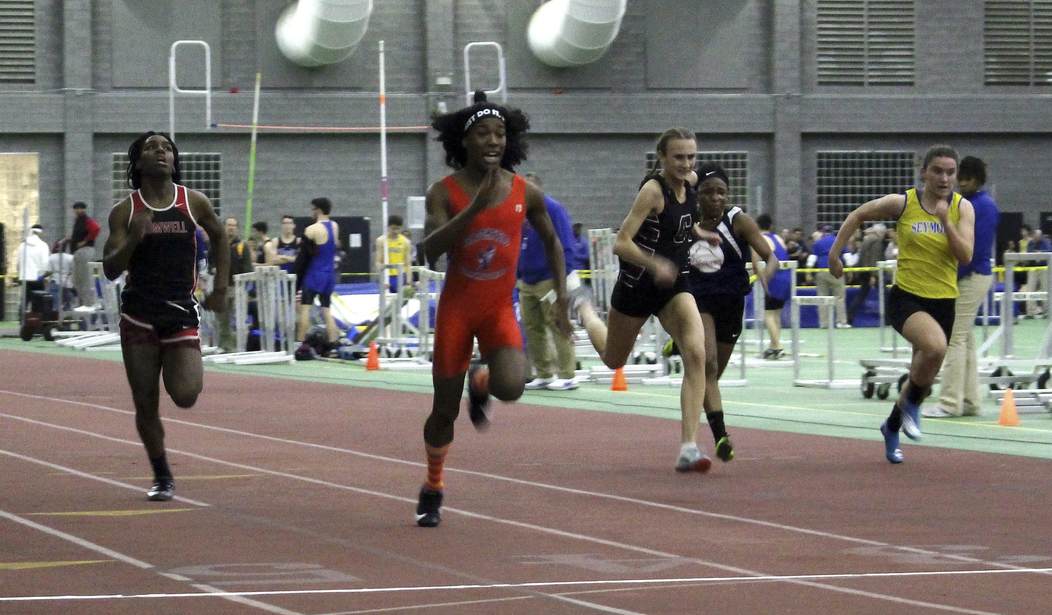Biological males who identify as women have a distinct advantage in women’s sports that creates an “intolerable unfairness,” according to a recent study published in The Journal of Medical Ethics. While the study rightly admits a truth that has become anathema in the days of transgender orthodoxy, the authors attempt to redeem themselves by calling for the abolition of male and female categories in sports.
The study, performed by New Zealand researchers at the University of Otago in Dunedin, acknowledges that “the inclusion of elite trans women athletes in sport is controversial.” Bioethicists Taryn Knox, Lynley Anderson, and Alison Heather conclude that allowing males to compete in women’s sports at the high testosterone threshold established by the International Olympic Committee (IOC) is unfair.
“The recent International Olympic Committee (IOC) (2015) guidelines allow transwomen to compete in the women’s division if (amongst other things) their testosterone is held below 10 nmol/L. This is significantly higher than that of cis-women,” the researchers conclude. “Science demonstrates that high testosterone and other male physiology provides a performance advantage in sport suggesting that transwomen retain some of that advantage.”
In other words, when a male says he identifies as a woman and wants to compete with women, he enjoys a distinct advantage over women, even if he has undergone some hormone or other treatments. Testosterone is one of the contributing factors to this advantage. In order for such men to compete with women, they must have testosterone levels no higher than 10 nmol/L — but that level is still far above the average for biological women.
“To determine whether the advantage is unfair necessitates an ethical analysis of the principles of inclusion and fairness. Particularly important is whether the advantage held by transwomen is a tolerable or intolerable unfairness. We conclude that the advantage to transwomen afforded by the IOC guidelines is an intolerable unfairness,” the New Zealand researchers write.
Testosterone is far from the sole reason males have an unfair advantage over females in women’s sports, however. Differences between male and female development begin in the womb and continue throughout life. As Duke Law School professor Doriane Lambelet Coleman testified, if the pro-transgender Equality Act allowed biological men to compete in women’s sports, “the very best women in the world would lose to literally thousands of boys and men, including thousands who would be considered second-tier.”
Coleman, who won a Track & Field scholarship to Villanova in 1978, warned that young girls everywhere risk losing the “extraordinary value” of female athletic role models if biological males dominate women’s sports.
Americans instinctively grasp the threat that transgender activism poses to women’s sports. Last month, a Rasmussen poll found that only 28 percent of American adults support “allowing transgender students to participate on the sports team of the gender they identify with, letting biological males, for example, play girls’ sports.” A whopping 77 percent of Republicans and 52 percent of the politically unaffiliated oppose allowing males in women’s sports, as do 36 percent of Democrats.
Yet under former President Barack Obama, the Department of Education reinterpreted Title IX to encourage letting men who identify as transgender to compete in school girls’ sports teams. This February, two males — Andraya Yearwood and Terry Miller — took the top two spots in the 55-meter dash at the Connecticut girls’ state track meet. In June, Alliance Defending Freedom (ADF) filed a federal discrimination complaint regarding this track meet.
“Girls deserve to compete on a level playing field. Women fought long and hard to earn the equal athletic opportunities that Title IX provides. Allowing boys to compete in girls’ sports reverses nearly 50 years of advances for women under this law. We shouldn’t force these young women to be spectators in their own sports,” ADF legal counsel Christiana Holcomb told The New York Times.
Unfortunately, many female athletes are terrified to speak up about this issue, worrying that they will face retribution.
Some in the women’s sports world are fighting back. After the male Mary Gregory broke four world records in women’s weight-lifting, 100% RAW Powerlifting Federation President Paul Bossi revoked his new records, rightly noting that Gregory is male. Unfortunately, the drug testing to prove this was only done after the awards had been distributed.
“The Drug Testing Coordinator for this event performed the drug test at which time it was revealed that this female lifter was actually a male in the process of becoming a Transgender female. Since the event at this time was over, awards had been distributed and the only lifters left were the ones which had been selected for drug testing,” Bossi wrote.
“Our rules, and the basis of separating genders for competition, are based on physiological classification rather than identification. On the basis of all information presented to the Board of Directors for this particular case, the conclusion made, is that the correct physiological classification is male,” he insisted. “Since the lifter’s gender classification for the purpose of our rules is not consistent with female, no female records will be broken by these lifts.”
While the Powerlifting Federation rightly defended the male-female classification for sports, the authors of the Journal of Medical Ethics study do not. Instead, they call for an Orwellian redefinition of sports categories.
The New Zealand researchers rightly note the unfairness of allowing males to compete in women’s sports, but their solution would also undermine women’s sports. “This does not mean transwomen should be excluded from elite sport but that the existing male/female categories in sport should be abandoned in favour of a more nuanced approach satisfying both inclusion and fairness,” the authors write.
Perhaps allowing a third category for men who identify as transgender women would make sense, but it seems these researchers are going much further than that. The male-female categories are based in biology and allow for the success of women in sports, as Coleman rightly testified. The transgender issue does not justify erasing this important distinction or fragmenting sports into dozens of different divisions.
Follow Tyler O’Neil, the author of this article, on Twitter at @Tyler2ONeil.











Join the conversation as a VIP Member